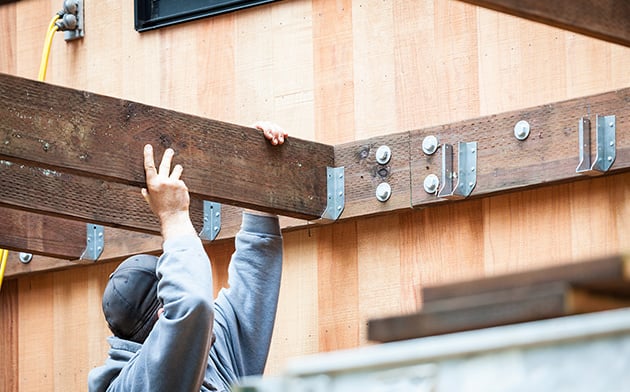The pool of independent contractors is deep, so do your homework for a good fit.
The time has come. You just can’t look at your outdated kitchen with mismatched appliances, countertops, and cabinets any longer. You’ve watched endless YouTube videos on kitchen remodels. Do you hire a professional or do it yourself? Will you need a home equity line of credit (HELOC) to help pay for it?
It becomes painfully clear that your project will be too complex and time-consuming for you to handle. So you decide to hire a contractor. Where to begin? How do you find the right one?

“There are so many good contractors out there, so it can be hard to choose,” said Tim Holland, Commercial Lines Account Specialist with SELCO Insurance Services. “Word of mouth is a good option, but it’s very important to see their past work first before making any decisions.”
Try not to jump in with both feet. Instead, review these 10 tips to help find the ideal contractor.
1. Get multiple estimates. If you’re starting with a referral, request a written estimate from that contractor, but don’t stop there. Lay out identical details of your project to at least two other contractors and get estimates from them. There are several sites like Angie’s List and Thumbtack to get you started for free.
2. Hire local, licensed contractors if possible. Even the best contractors make mistakes. So, when you need something fixed, the last thing you want is someone who lives out of town and is hard to reach. Local contractors also are likely more familiar with building codes in your area.
3. Check (and re-check) their work. There’s no such thing as too much vetting when it comes to contractors’ past work. How long have they been in business? Do they have a solid reputation? Inquire about these things and more on their respective websites and at the Better Business Bureau, read customer reviews, and check references.
4. Take your time making your pick. You can’t wait to have a shiny new bathroom. That’s natural. But try to resist the urge to make a knee-jerk decision. Weigh all the bids and read the fine print on EVERYTHING in the contract before signing on the dotted line.
5. Check their insurance and bonding. Make sure the contractor is properly insured and bonded. First, check the Construction Contractors Board (CCB) website to verify the contractor has his license in order. Then, ask the contractor for a Certificate of Insurance (COI) to be sure he has proper coverage. Holland suggests a contractor be insured for at least $1 million. Any lower than that, keep looking.
“Even an expert builder can make mistakes, or their materials fail,” Holland said. “When this happens it can be incredibly expensive to fix. If your contractor doesn’t have adequate coverage, you can be on the hook for the repair costs or trapped in a lawsuit that you may never win.”
6. Get everything in writing. Before work begins, make sure your contractor provides a comprehensive contract for you to review. If your project will be expensive, consider having a lawyer review the contract and make sure it contains the following:
-
-
- A detailed description and price of the work.
- A payment schedule.
- Estimated start and completion date.
- Any guarantees and how long they’re valid.
- Your and your contractor’s signatures.
-
7. Understand your right to cancel. If you change your mind, you can cancel the contract without penalty (called the “cooling off” period). If you go this route, consider sending the notice of cancellation by certified mail so you’ll have a receipt on file.
8. Don’t pay in full until the work is done. While it’s standard practice to pay a percentage of the estimated costs upfront, you should never pay the full amount until the work is complete. Again, read the fine print on a contract before signing anything.
9. Anticipate delays. Not everything goes according to plan, especially if your project will take weeks, if not months, to complete. Unforeseen circumstances like bad weather can slow things down, so try to be realistic and patient.
10. Keep records. Much like your medical records or trips to the mechanic, you’ll want to store all paperwork related to your project in one place. These include:
-
-
- Your contract
- Change orders
- Any correspondence (copies of emails, phone calls log, etc.)
- A record of all payments.
-
Think of a home-improvement project as a long game. By setting aside extra time to find just the right contractor, you’ll be that much more pleased with the end result.


